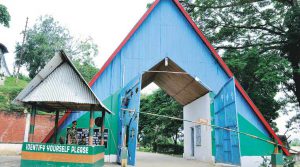This summer, I worked with Professor Zachariah Mampilly from the Political Science Department studying taxation by armed groups in conflict zones. The work undertaken this summer is part of a continuing project by Professor Mampilly that seeks to better understand and explain the underlying logic of taxation by rebel groups in areas under their control.
We started by compiling and reviewing existing literature on taxation and its relationship to rebel governance. Much of this work relies on a paradigm of economic instrumentalism to explain why and how armed groups engage in taxation. This body of work paints a broad picture that tends to obscure or ignore the varieties of practices that characterize taxation by different active and historical rebel groups globally. In order to better account for the diversity of practices and goals of different rebel groups, we identified a number of active groups in different parts of the world to focus on and researched their tax practices to evaluate existing and proposed hypotheses about the economic and non-economic motivations for rebel taxation.
 (NSCN-IM Camp Hebron, Nagaland, India)
(NSCN-IM Camp Hebron, Nagaland, India)
One group we focused on was the National Socialist Council of Nagaland-Isak-Muivah (NSCN-IM), a nationalist insurgent group based in northeastern India that is known for its heavy taxation of the region under its control. In July, Professor Mampilly traveled to India to conduct fieldwork in Nagaland, while I remained at Vassar to analyze data collected from the trip. His interviews in India yielded data from civil society groups in Nagaland about current and historical NSCN-IM tax collection practices that allowed us critically evaluate purely economic explanations for rebel tax structures in existing literature, specifically their reliance on the idea of time horizons determining tax behaviors as proposed by Mancur Olson. The primary source tax data about the NSCN-IM seems to point instead toward other motivations behind taxation, which will require additional data collection and analysis to fully explore.
Overall, working with Professor Mampilly in early stage research for a long-term project was a rewarding and illuminating experience.
